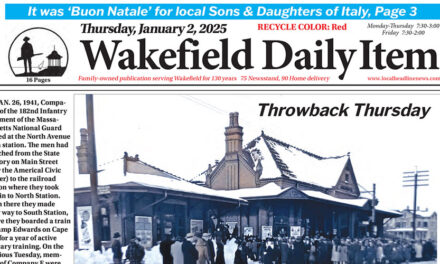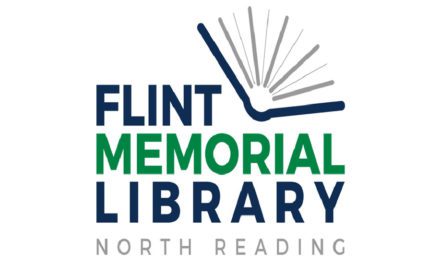MELROSE — The City of Melrose is helping bridge communication barriers between city employees and Melrose residents whose primary language is not English by equipping city departments with two-way translation devices called Pocketalk that can create connections across 82 different languages.
Thanks to grant funding from MelroseWakefield Hospital/Tufts Medicine and the Massachusetts Department of Public Health, a total of 15 city departments now have hand-held Pocketalk translation devices, and on May 24, employees from these departments were trained on how to use them to better serve residents whose primary language is not English by Health and Human Services Department staff Kara Showers and Collin Macgowen, and intern Shayla Gravell, a Tufts University student.
“We are grateful for our partners at the Massachusetts Department of Public Health and MelroseWakefield/Tufts Medicine who, through their support, help us reach our aspiration of serving all Melrose residents to the best of our ability,” said Mayor Paul Brodeur. “Pocketalk will significantly improve our capacity to provide effective customer service and City services to our community members whose primary language is not English.”
The City’s Social Services office has been using the Pocketalk translation devices since the fall of 2022 as part of a pilot program.
“Thus far, the social services office has utilized our pocket talk to bridge language barriers and provide services to Melrose residents who primarily speak Portuguese, Spanish, Cantonese, Arabic, and Haitian Creole,” said Collin MacGowen, Social Services Coordinator for the City of Melrose. “The Pocketalks not only increase our capacity as a municipal office, but they also represent our dedication to respect and acknowledge the diversity of all Melrose residents by providing more options and resources.”
“It is rewarding to see these grants making an impact in our communities, helping to remove barriers and improving access to better serve residents who are English language learners,” said Kelly Corbi, President of MelroseWakefield Hospital and Lawrence Memorial Hospital.
So far, the following departments have Pocketalk devices and are trained to use them: Recreation, Assessors, Council on Aging and Milano Center staff, Police, Fire, Melrose Public Library, Memorial Hall, the Department of Public Works, Parks, Human Resources, City Clerk’s Office, Central Admin at Melrose Public Schools, Treasurer/Collector’s Office, and the Mayor’s Office.




